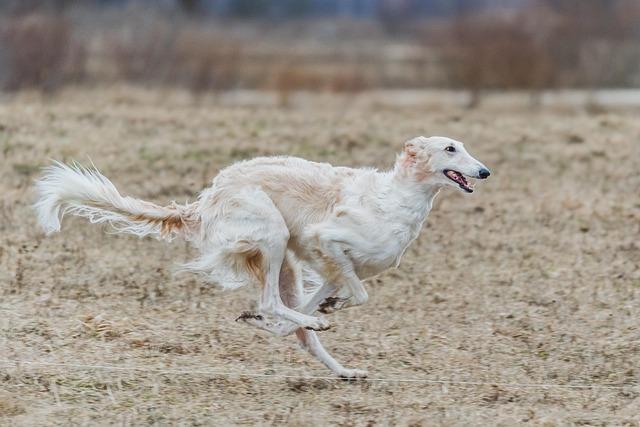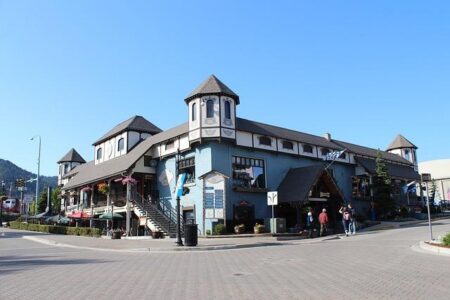In recent years, a growing number of Russian athletes have chosen to relocate abroad, seeking new opportunities and competitive environments beyond their home country. This emerging trend, often described as a diaspora, reflects deeper challenges within Russia’s sporting landscape, including geopolitical tensions, restrictive policies, and limited resources. “Relocate to compete: a critical view on the diaspora of Russian athletes” delves into this complex phenomenon, examining the motivations behind these moves, their impact on both the athletes and Russian sport, and what the future may hold for a generation caught between national allegiance and career ambitions.
The Growing Trend of Russian Athletes Seeking Opportunities Abroad
In recent years, a significant number of Russian athletes have turned their gaze beyond national borders, seeking competitive platforms and career growth opportunities abroad. This surge is driven not only by political and economic challenges at home but also by the desire to escape restrictions impacting sport participation due to international sanctions. Athletes are increasingly motivated by the promise of enhanced training conditions, financial incentives, and the chance to compete without geopolitical complications. The result is a marked shift in the global sports landscape, with Russian talent becoming a critical force in diverse disciplines, from figure skating to track and field.
Key factors fueling this trend include:
- Access to better sports infrastructure and coaching abroad
- Ability to represent other nations at international events
- Escape from travel bans and doping-related controversies
- Expanding professional leagues offering lucrative contracts
| Sport | Common Destinations | Average Relocation Time (Months) |
|---|---|---|
| Ice Hockey | USA, Canada, Finland | 6-8 |
| Figure Skating | USA, Japan, South Korea | 4-6 |
| Track & Field | UK, Germany, Australia | 5-7 |
| Gymnastics | USA, Italy, Belarus | 3-5 |
Challenges and Consequences for Russian Sports Development
The exodus of talented athletes from Russia presents profound obstacles for the country’s sports ecosystem. With top performers relocating to foreign training centers, the domestic development pipeline faces acute talent drain, resulting in weakened national teams and diminished competitive prospects. The loss extends beyond individual athletes; it affects coaching quality, investment incentives, and sponsorship opportunities within the nation. Moreover, the gap in infrastructure modernization widens as elite athletes seek environments better equipped for high-level competition abroad.
Key ramifications include:
- Reduced international visibility and influence of Russian sports federations.
- Lowered motivation among upcoming juniors due to a lack of elite role models at home.
- Financial strain from decreased governmental and private funding linked to sports success.
- Unstable national team rosters causing strategic planning difficulties.
| Aspect | Before Athlete Relocation | After Athlete Relocation | |||||||||||||||||||||||||||||||||||||
|---|---|---|---|---|---|---|---|---|---|---|---|---|---|---|---|---|---|---|---|---|---|---|---|---|---|---|---|---|---|---|---|---|---|---|---|---|---|---|---|
| National Team Stability | High | Low | |||||||||||||||||||||||||||||||||||||
| Funding Levels | Robust | Declining | |||||||||||||||||||||||||||||||||||||
| Youth Engagement | Growing | Stagnant |
| Aspect | Before Athlete Relocation | After Athlete Relocation |
|---|---|---|
| National Team Stability | High | Low |
| Funding Levels | Robust | Declining |
| Youth Engagement | Growing | Stagnant |
If you would like me to help further with analyzing or summarizing this content, or creating a different format, please let me know!
How Host Countries Benefit from the Influx of Russian Talent
The arrival of Russian athletes has injected fresh energy and expertise into host nations’ sports ecosystems. Their presence elevates the competitive standards of local leagues, fostering greater interest among fans and attracting lucrative sponsorships. Additionally, these athletes often serve as invaluable mentors, sharing advanced training techniques and professional discipline with homegrown talent, which accelerates skill development across various disciplines. This cross-pollination enhances overall national performance in international competitions, providing the host countries with a strategic edge on the global stage.
Beyond the field, the economic implications are equally significant. Host countries benefit from increased tourism – with fans traveling to watch talented Russian athletes compete – as well as from merchandising and media rights expansions. The social impact is notable too: the visibility of successful Russian athletes encourages cultural exchange and diversity acceptance, enriching community cohesion. Below is a summary of key benefits observed in recent years:
| Benefit | Positive Outcome |
|---|---|
| Performance Boost | Improved team results in international tournaments |
| Economic Growth | Higher ticket sales and sponsorship deals |
| Knowledge Transfer | Advancement in training methodologies |
| Cultural Exchange | Increased multicultural understanding and social integration |
Policy Recommendations to Address the Athlete Diaspora and Support Domestic Growth
To effectively stem the outflow of elite Russian athletes and catalyze domestic sports development, policymakers must adopt a multifaceted approach that balances incentives with infrastructural enhancements. First, improving training facilities and funding at the grassroots level will create a more competitive environment that retains emerging talents. National sports federations should prioritize transparent career pathways and equitable resource distribution, ensuring that athletes feel supported beyond financial gains. Additionally, fostering partnerships with foreign leagues under controlled agreements could facilitate knowledge exchange without encouraging permanent emigration.
Furthermore, addressing socio-political factors that contribute to the athlete diaspora requires innovative policy frameworks. The following targeted strategies highlight potential interventions:
- Establishing mentorship programs pairing seasoned domestic athletes with younger prospects to reinforce national pride and commitment.
- Introducing competitive remuneration packages that rival international offers while integrating performance bonuses tied to national representation.
- Legal protection and flexible contracts that allow athletes to compete abroad temporarily without severing affiliations with Russian sports bodies.
- Campaigns promoting the cultural significance of representing Russia, emphasizing identity and long-term legacy over short-term gains.
| Policy Focus | Implementation Benefit | Expected Outcome |
|---|---|---|
| Infrastructure Investment | Enhanced training quality | Reduced athlete migration |
| Contract Flexibility | Balanced career options | Improved athlete retention |
| Financial Incentives | Competitive salaries | Motivated domestic competition |
| Cultural Campaigns | Heightened national pride | Strengthened national identity |
Key Takeaways
As the global sports arena continues to evolve, the migration of Russian athletes underscores broader geopolitical and socio-economic currents shaping international competition. While relocation offers individual athletes new opportunities, it also raises complex questions about national identity, loyalty, and the true cost of such moves on both the athletes and their home country. The diaspora of Russian sports talent is more than a trend-it’s a phenomenon that demands close scrutiny from sports officials, policymakers, and fans alike. Only through understanding these dynamics can the sporting world navigate the challenges and opportunities presented by this shifting landscape.





